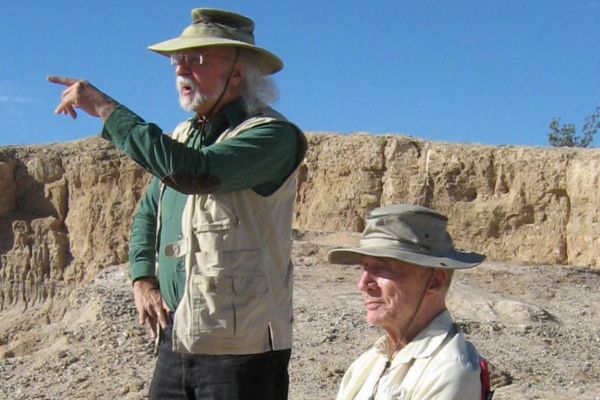Blog
-
On October 11, Pluto makes a station, turns around, and heads for the Aquarian frontier for the last time. As you probably know, it’s been toggling between retrograde and direct motion while straddling the Aquarian cusp for quite a while. It was in Aquarius for ten weeks back in the middle of 2023 and returned to Aquarius a second time between January and September 1st of this year. That’s the day it re-entered Capricorn for a final time. After making its station this month, Pluto turns direct and arrives solidly in Aquarius five weeks later, entering it on November 19th where it will remain for the next nineteen years.
As ever, when a planet makes a station – in other words, stands still, about to turn retrograde or direct – its energies become very focussed and intensified. For that reason alone, October promises to be a very Plutonian month. On top of that, when a planet is the final degree of a sign – often called the anaretic degree – there’s an underlying sense of urgency to it. When you were in school, remember the way you felt the night before final exams? When it comes to studying, that meant it was now or never. That’s the feeling of an anaretic degree. With Pluto making its station in 29 degrees 38 minutes of Capricorn, we’re all in exactly that position – here comes our final exam.
This event isn’t just about “history” happening – it will have personal meaning for you too. Everything in the sky does. But everyone on Earth will be experiencing this radical intensification of Plutonian energy simultaneously. In other words, it’s not like a transit that hits one person very directly and misses someone else. This one is for everybody. As always, some of us will do well with it and some of us will do poorly. If “poorly” wins, it bodes ill for the whole planet.
Don’t despair – surrendering to despair is simply one of the soul-cages dark Pluto offers everyone.
-
In all my years of practicing our mysterious craft, I have never once met anyone who possessed these two qualities at the same time – they didn’t believe in astrology and they knew a damned thing about it. Seeing this pair of conditions operating in the same person would be like finding a blind Uber driver or an astronaut with a big fear of heights. They’re unicorns. They don’t exist.
Once we give astrology a chance to prove itself, its efficacy simply can’t be denied.
Just this week I did a reading for a woman who teaches breastfeeding. Her chart shows a Cancer Midheaven. Chance? I just got a sad message about an old friend who died before her time. Saturn had just touched her Ascendant. Chance? As any astrologer knows from experience, the list goes on and on. All you need is an open mind. Give astrology the opportunity and it proves itself to you – or to anyone. In the right hands, it never fails.
Many intelligent, thoughtful human beings disbelieve in astrology. I wouldn’t shame them for that. They come by their disbelief innocently. Some of it is just what they were trained to parrot from an early age, at least if they wanted to make A’s in 6th grade science class. Some of it is that strange shibboleth that we call “common sense.” After all, the premise that the planets “control us” does seem implausible – they’re millions of miles away, so how could they possibly affect anyone? Why would they? And so forth.
-
I never had kids. Other than my cats, the nearest thing to children in my life has been my books – and at last count, I’m the proud papa of sixteen of them. In one way, my books are even more like my kids than my cats are. That’s because they last a lot longer. You expect to outlive your cat, but you can at least hope for the opposite with your books (and of course, your children.)
My firstborn book – my first published book to be precise – was The Inner Sky, which came out in August 1984. That’s forty years ago this month. Some of you older readers have seen your child turn forty. I suspect that’s a sobering moment – or at least one that really puts you on the map in terms of the aging process. It’s similar with books. When The Inner Sky was born, I was just thirty-five years old. Now I’m seventy-five. Knowing the book is now five years older than I was when I wrote it rings some deep bells in me.
I’d signed the contract to write The Inner Sky – and collected half of my $10,000 advance – in summer 1981. My progressed Moon had just risen into the 7th house. Solar Arc Uranus was squaring my lunar nodes, while transiting Uranus was finishing up a conjunction with my Ascendant. My chart was locked and loaded for some big, empowering changes, in other words. I dived into the writing process which took a couple of years. I wrote the whole thing on a manual typewriter and eventually mailed a thick stack of paper to the publisher – that’s how long ago all of this was. Just to be clear with any of you younger folks, on the day I finished writing The Inner Sky I’m pretty sure there were no mastodons grazing outside my window. The saber-tooth tigers had finished them off.
-
Among conventional astrologers, trines are lucky aspects, period. The more of them you have, the luckier you’ll be. But to win the Gold Medal, what you really want is a Grand Trine – that’s three planets (or you can include the Angles) arranged in an equilateral triangle. You’re allowed a little slush – the triangle doesn’t have to be perfect, but it had better be close. What orbs to allow? There’s a lot of argument there – say, a few degrees, no more than seven or eight. As usual, if the Sun, Moon, or Ascendant are involved, you’re naturally a little more generous with the orbs. But even a wimpy Grand Trine will put you on the fast track to fame and fortune – that is, if we are to believe those kinds of astrologers.
Rather than labeling trines – and the Grand Trine itself – “lucky,” I prefer the word “easy.” Those two words don’t mean quite the same thing. Grand Trines do open doors and they can definitely roll out red carpets for you. That’s easily demonstrated. Do those doors and red carpets lead to good places and copacetic outcomes? Yes, sometimes. We won’t be completely dismissing the idea of simple good fortune in connection with this aspect pattern – we’ll just be looking at it a bit more cautiously. We must always recognize that like everything else in astrology, your own choices, be they wise or foolish, are always part of the equation.
-
When I was sixty-one years old, I met one of the two or three wisest human beings I have ever encountered. His name was Robert A. Johnson. Our relationship had an enormous impact on me, one whose effects and treasures I am still sorting out fourteen years down the road. Astrology helps!
At age eleven, Robert lost a leg when he was hit by a car. He told me that his childhood ended that day.
The year I was born – 1949 – he was in Zurich, Switzerland, studying psychology with Carl Jung and in analysis with Jung’s wife, Emma.
He was the author of many books in a Jungian psychology vein, three million of which were sold. Most of them were on my bookshelf years before I met him. They never got dusty.





